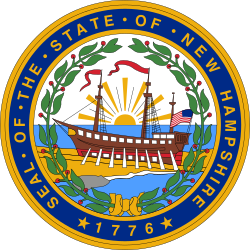| |||||||||||||||||
| |||||||||||||||||
| |||||||||||||||||
| Elections in New Hampshire |
|---|
 |
The 1786 New Hampshire gubernatorial election was held on March 14, 1786, in order to elect the President of New Hampshire. (The office would be renamed to Governor in 1792.) Incumbent Anti-Federalist President John Langdon was defeated in his re-election bid by Federalist candidate John Sullivan, who had initially finished third during the previous President election. [1]

